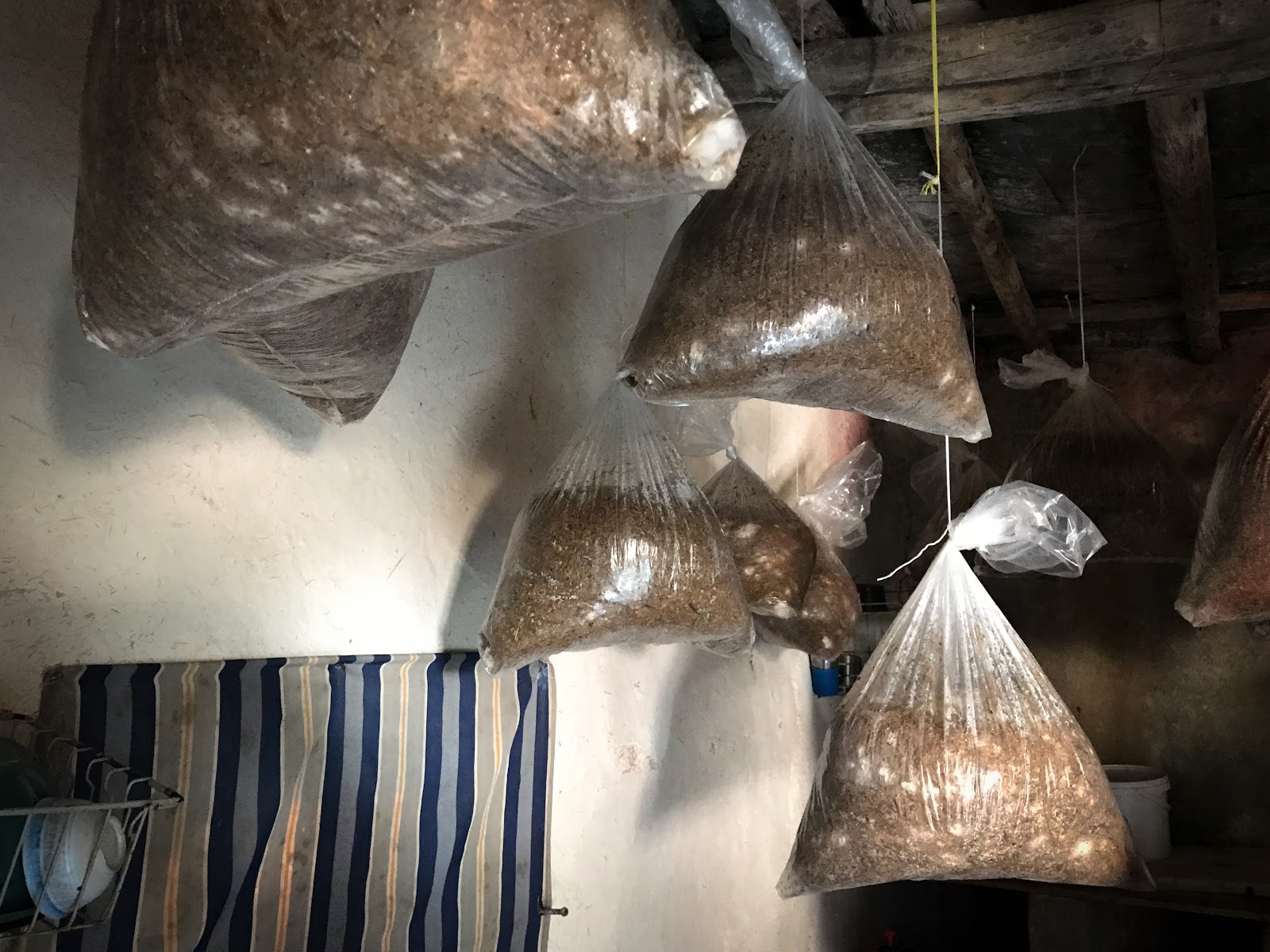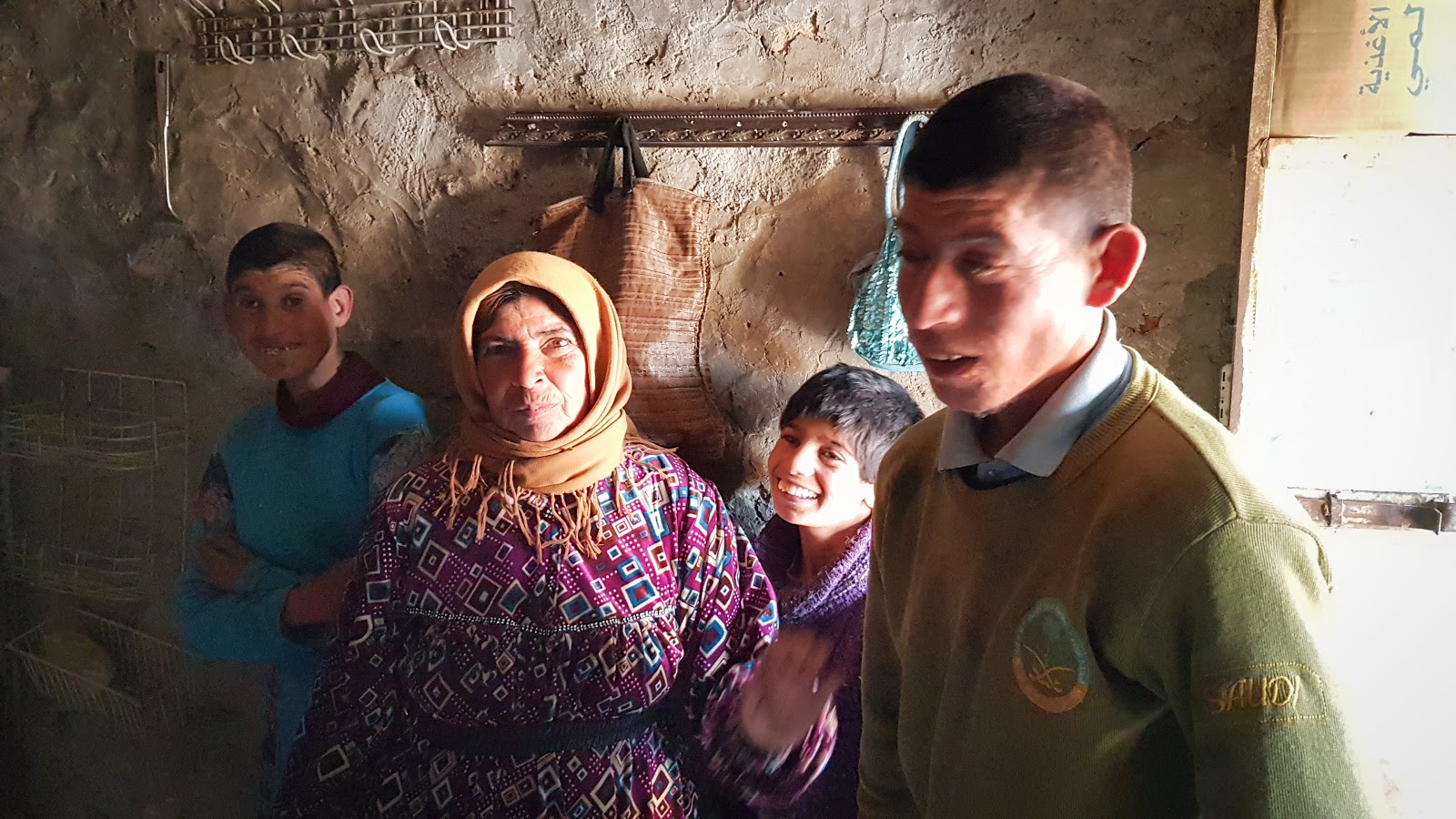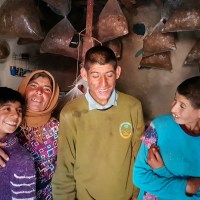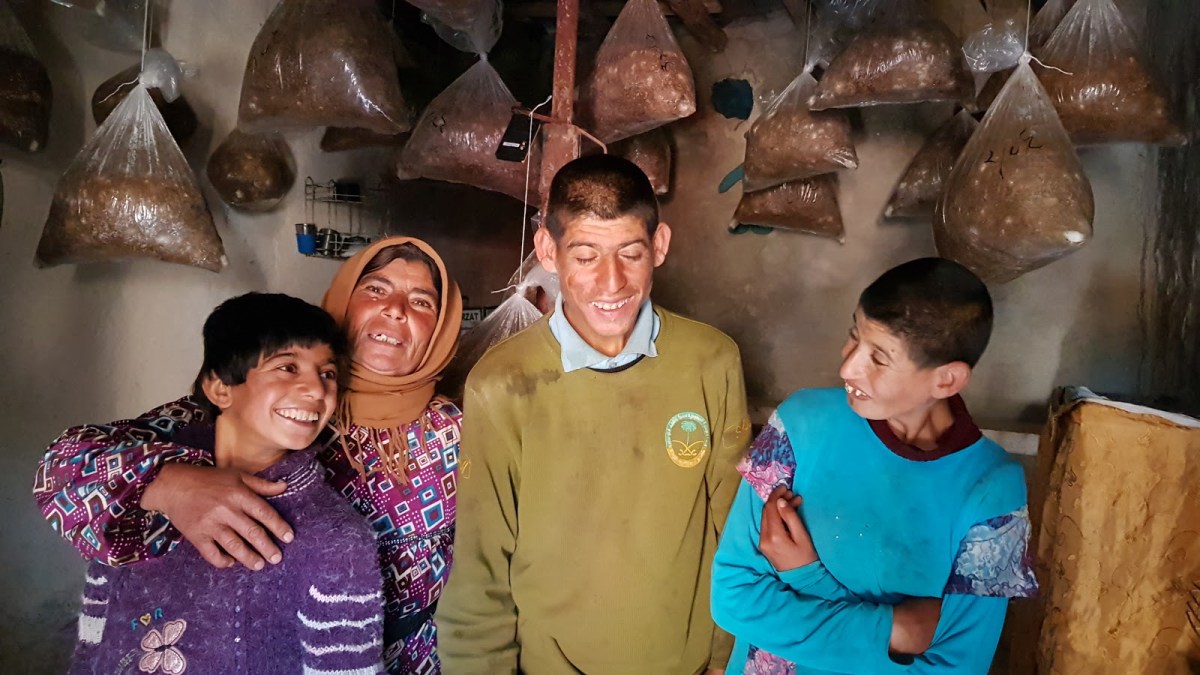The world doesn’t yet function in a way that allows everyone—regardless of ability—equal access and opportunity. This can be especially true in rural areas; exponentially true in war zones. Life can be difficult for those who function outside of what their society has deemed to be “normal.”
Rural areas in Syria and Iraq don’t offer much in the way of services for those who have developmental or physical differences. Years of war (and the impacts of sanctions in Iraq) has meant there are always more urgent needs to attend to. What is urgent too often trumps what is important.
There aren’t schools or enrichment programs for those who don’t learn best in traditional school models. There aren’t enforced building codes that make sure structures are universally accessible. Family members who don’t fit into stereotypical norms are often left behind.
For Fatoum, pictured above wearing a hijab, life has served up an extra-helping of complications. She is raising eight children in a rural village in Syria, four of whom have developmental disabilities. Their family was displaced because of the war, and spent years living in a tent—enduring winter’s freezing cold and summer’s burning heat. Fatoum also cares for her husband, who recently had surgery for a head injury he sustained because of the war.
Mercy. That’s too much for one woman to manage on her own.
When families are selected for our agriculture projects, they are assessed on the basis of need—how complicated is it for this family to find work or start a business on their own? One of the factors taken into consideration is having family members with differing abilities whether from birth, accident, or because of war.
Here are three ways that our agriculture projects are helping Syrian families like Fatoum’s with kids who are differently-abled:

1) Farming allows parents to be close to home and care for their children.
Working outside the home isn’t possible for Fatoum and moms like her. Her home environment is the best, safest option for her children—and her children can’t be left alone.
Fatoum is now able to grow mushrooms in a room in her house. She is able to attend to her crop after her children’s and her husband’s needs have been met. Farming allows the possibility for farmers to remain close to home, to care for both their crops and their families.
2) Farming allows the children to remain included, at the center of family life.
Fatoum adores her children—they are her joy. Keeping her children engaged and included not only makes life richer for her children, but for her whole family! Fatoum doesn’t have to choose between keeping her children woven into the center of their family life or making an income. Farming allows her to do both.
3) Farming allows Fatoum to pay for her household needs, and the medical needs of her family.
Life in a displacement camp was so miserable, that at the first moment it was possible to return to their hometown, Fatoum brought her family home. They were some of the luckiest ones—they found their house still standing. But Fatoum had no income at all to feed her family. Having a roof over your head provides an essential sense of security, but security doesn’t fill your children’s stomachs.
Fatoum is new to farming. She heard of it from neighbors who were enrolled in our project earlier and were thrilled with the success they were having growing oyster mushrooms. Seeing their success made her determined to have that for her own family.
The income Fatoum will receive from her first crop will take care of her family’s immediate needs, like food and household supplies. It will provide enough cash to pay for medicine during her husband’s long recovery. And it gives Fatoum the ability to buy supplies for her next crop, ensuring a sustainable income for her family for the future.

During a visit to Fatoum’s home, our staff noted, “Getting to own a business and improve the quality of life made Fatoum the happiest woman alive. She is so excited and talks about mushroom farming almost all the time. Our next visit to Fatoum will be to taste her product and take a look at the next generation she will plant.”
When you invest in agriculture projects for Syrian families, you do more than provide an income for a wide range of vulnerable families. You also pave the way forward, providing access and opportunity for all.


